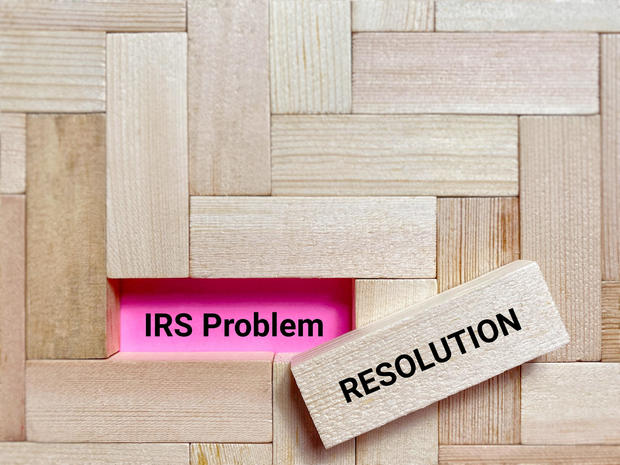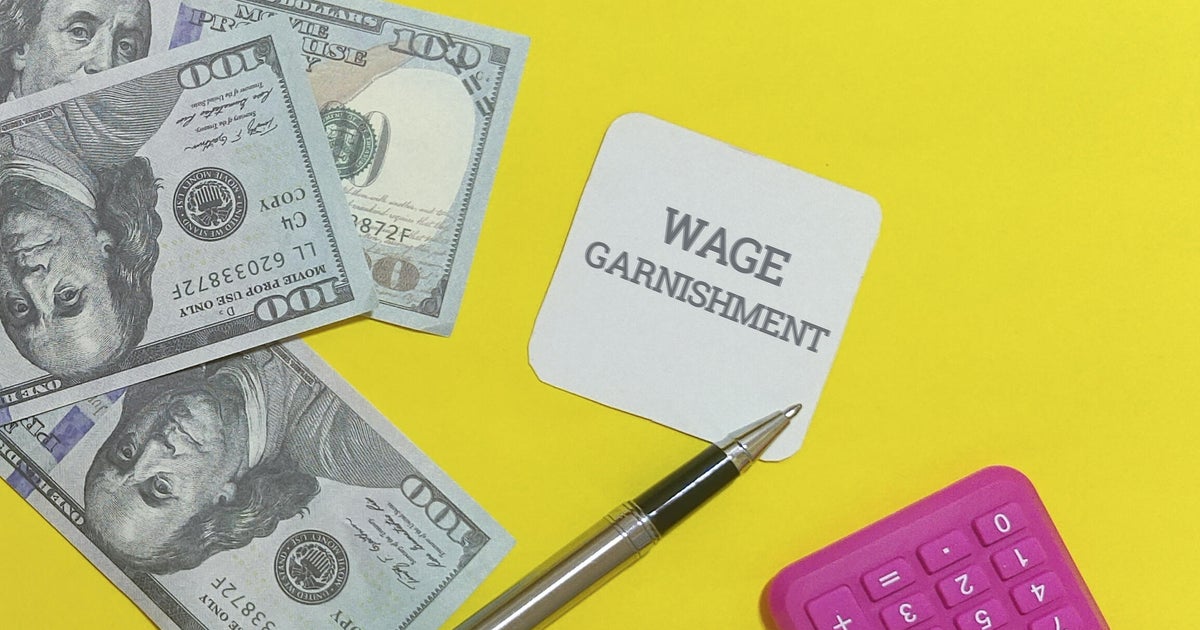Can't pay your taxes? What to do now
In August, the Consumer Price Index, which measures the price of goods and services, jumped 8.3% higher year-over-year from August 2021. In addition to higher prices at the gas pump and grocery store, inflation is also making it challenging for Americans to pay off debt, including tax debt.
According to Debt.org, owing money to the IRS is more prevalent than you might think, with 17% of income taxes going unpaid each year. In all, 8.42 million Americans owe taxes totaling more than $133 billion, according to 2021 data from the IRS.
Getting a tax bill from the IRS is unnerving and can place your financial health in uncertainty, especially amid an inflationary economy that is already stretching your dollar. Remember, failing to pay your tax bill can lead to penalty fees and accrued interest, increasing the amount you'll have to repay.
That's why it makes sense to work with a tax relief professional who can help you before your debt grows. Speak to an expert today to get started.
For example, you could owe a failure-to-file penalty equal to 5% of your unpaid taxes per month for up to five months and a maximum of 25%. Additionally, unpaid taxes for individuals accrue interest at the federal short-term interest rate plus 3%, with interest compounding daily.
Thankfully, the IRS offers several tax debt relief options to help you if you qualify. Learning more about your options can help you take the first steps to address your outstanding taxes.
Payment plans
Perhaps the most common way to resolve back taxes is to enter into an IRS installment agreement, which is available in two forms:
- Short-term payment plans: You may qualify for a short-term agreement if you owe less than $100,000 in tax debt and can repay the amount within 180 days.
- Long-term payment plans: These installment agreements are available to taxpayers owing $50,000 and allow you to pay on a monthly basis. You'll still owe interest and penalties that accrue as long as the balance is unpaid, but your failure-to-pay penalty can be cut to 0.25% monthly from up to 1%.
In either case, you can pay your tax debt over time, and these plans help you avoid tax levies, wage garnishments and other collection methods. Not sure which plan works best for you? Speak to a tax relief expert now who can help guide you through the process.
Offer in compromise (OIC)
Another option for tax help is an offer in compromise (OIC) agreement with the IRS to settle your tax debt for less than what you owe. These arrangements are designed for those who want to enter into an installment agreement but can't pay their tax bill in full by the specified deadline.
The IRS states that filers with the means to pay for their tax liabilities through an installment agreement, assets or other methods are usually ineligible for an OIC settlement.
The IRS may accept your offer for a partial payment of your tax liability for one of these reasons:
- Doubt as to liability: Your offer in compromise may meet this eligibility condition if there's a legitimate dispute of the tax debt or the amount of your tax bill on a legal basis.
- Doubt as to collectibility: You may meet this condition if the IRS believes they may be unable to collect the owed taxes because your assets and income are less than the total amount of the tax debt.
- Effective tax administration: The IRS may accept an OIC if they determine that paying the full tax liability would create an economic hardship or be unfair and inequitable.
If your offer is accepted, you may substantially lower your tax debt. If you'd rather not spend the time doing the legwork, you might want to work with a tax relief service that can act as a middleman between you and the IRS. Use the table below to get started.
Currently not collectible (CNC)
Need a little time before you can pay your tax debt? An IRS status called "currently not collectible" may be an option. To qualify, you must prove that paying your tax debt will leave you unable to cover your basic living expenses.
Your tax obligation doesn't go away when your status is currently not collectible, but the IRS agrees to give you time to find solid financial footing and pay your back taxes. Bear in mind, CNC status is not indefinite; the IRS will continue to review your ability to pay and may even file a tax lien at some point.
Of course, your account will still accrue interest and penalties for as long as your tax debt is outstanding. Speak with a tax relief expert who can help determine your eligibility.
Maintain a good relationship with the IRS
When you file your taxes, the last thing you want is to receive a tax bill from the IRS. Still, when it comes to something as important as your taxes, it's not wise to set it aside to deal with it later. Replying promptly to IRS inquiries and proactively seeking a solution is key to avoiding severe IRS penalties like levies and wage garnishment.
Remember, you may qualify for the tax relief options mentioned above and even set up the arrangements yourself. But if the process seems overwhelming or you're short on time, you might consider hiring a tax relief company for help.
Be aware that there are some bad actors in the tax relief industry, but some reputable companies with tax experts as well. Consider it a red flag if a company guarantees debt forgiveness, promises to substantially reduce or eliminate your tax debt or solicits your business with promises to negate your tax debt.




